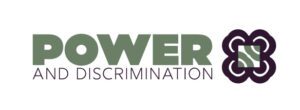It’s About: Bias in the Peer Review Process
Psychological science has long grappled with racial disparities, both in its research focus and its publication practices. Despite efforts to shed light on racial bias within research topics, study samples, and academic teams, the issue of bias in the peer review process remains largely unexamined. This study, explores the mechanisms underlying racial bias and censorship in the editorial and peer review process, drawing from real-life examples to illustrate the pervasive nature of this issue.
Peer review process is not immune to racial bias.
Racism infects every stage of the knowledge dissemination pathway, from the selection of research topics to the publication decisions made by predominantly White editorial boards. Studies have shown that journals led by White editors-in-chief are less likely to publish papers addressing race, and manuscripts authored by people of color face significant barriers in the peer review process. This systemic bias not only perpetuates racial disparities in academia but also contributes to the mental health disparities experienced by communities of color.
The peer review process, touted as a quality assurance mechanism, is not immune to racial bias. The selection of reviewers, the evaluation of racialized expertise, and the censorship of critical perspectives all contribute to the perpetuation of inequities within the field. This examination of real-world examples underscores the urgent need for reform within the editorial and review process to ensure racial equity.
Power concedes nothing without a demand. This is why we fight.
Recommendations for equitable publication practice abound, ranging from diversifying editorial boards to implementing transparency measures such as positionality statements for authors and reviewers. The recent initiatives by leading psychological associations to address racism in publishing are commendable, but more concerted efforts are needed to dismantle the systemic barriers that hinder the advancement of racial equity in psychological science.
As scholars committed to addressing racism in academia, the authors recognize the discomfort that comes with confronting entrenched biases. Yet, it is only by acknowledging and challenging these biases that we can begin to create a more inclusive and equitable scientific community. By centering the voices and experiences of marginalized communities, psychology can fulfill its promise to understand the full spectrum of human diversity.
Note: This series highlights articles from the recently published special issue of Frontiers in Psychology, “Power, Discrimination, and Privilege in Individuals and Institutions,” edited by Sonya Faber, Monnica T. Williams, Matthew D. Skinta, and Bia Labate.
Strauss, Dana, Gran-Ruaz, Sophia, Osman, Muna, Williams, Monnica T., & Faber, Sonya C. (2023). Racism and censorship in the editorial and peer review process. Frontiers in Psychology 14. https://doi.org/10.3389/fpsyg.2023.1120938
Art by Mariom Luna.
Take a minute to browse our stock:
Did you enjoy reading this article?
Please support Chacruna's work by donating to us. We are an independent organization and we offer free education and advocacy for psychedelic plant medicines. We are a team of dedicated volunteers!
Can you help Chacruna advance cultural understanding around these substances?


















